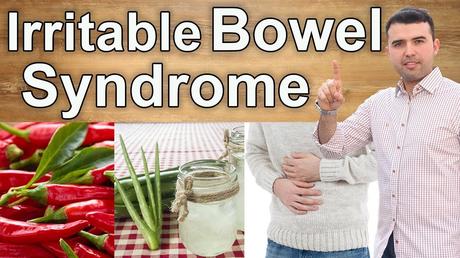
What is IBS?
IBS is also known as spastic colon, irritable colon, mucous colitis, and spastic colitis and is a long term gastrointestinal disorder that can cause persistent discomfort. It is a chronic condition and the symptoms tend to change over the years. This is a group of intestinal symptoms that typically occur together in which the severity and duration of symptoms may vary from person to person.
What causes IBS?
The exact cause of IBS is unknown but some possible causes include an overly sensitive colon or immune system or by a previous bacterial infection in the gastrointestinal tract.
The other physical causes involved in IBS may consist of:
- Slowed or spastic movements of the colon which can cause painful cramping
- Abnormal serotonin levels in the colon which affects the motility of bowel movements
- Mild celiac disease which affects the intestine and causes IBS symptoms
Here are some other factors that increase the chances of IBS are:
- Unhealthy diet and lifestyle
- Genetic factors
- Imbalance of hormones
- Various environmental factors like stress, anxiety, etc
- Sensitive digestive system
- Malfunctioning in the muscles that pass food through the body
- The central nervous system (CNS) is not able to control the digestive system
What are the symptoms of IBS (Inflammatory Bowel Syndrome)?
The most common symptoms of IBS include:
- Changes in bowel movements
- Abdominal pain and cramping and patient get relief after passing a stool
- The urgency to pass stool
- Passing excessive gas
- The passing of mucus from the rectum
- Abdominal bloating
- Symptoms become worse after food intake and the flare-up may last for several days, and then symptoms either improve or resolve completely.
These above-mentioned signs and symptoms may vary between individuals. They can also affect different parts of the body and has other related symptoms like:
These may include:
- Frequency of urination increases
- Halitosis (bad breath)
- Headache
- Painful Joints
- Muscle pain
- Persistent fatigue
- Painful sex, or dyspareunia
- Irregular menstruation
- Anxiety and depression
Home Remedies for IBS (Inflammatory Bowel Disease)
Chandigarh Ayurved Centre is providing you natural and effective home remedies for IBS. Most of the patients are taking steroids for treats and managing these symptoms but this is not a permanent treatment. Here are some of the best home remedies that are very helpful in managing the symptoms associated with IBS.
1. Aloe Vera:
Aloe vera has various medicinal properties like antioxidant, anti-inflammatory, analgesic, & Immuno-modulator properties. These herbs eliminate the harmful toxins or ama from the intestines which keep the intestine healthy and clean. It shows effective results in the gastric problem, constipation, abdominal pain related to irritable bowel syndrome.
How to use
- Take the fresh pulp of Aloe vera and add a few amounts of water in it.
- Blend it properly. Drink 20 ml of this fresh juice once or twice daily on an empty stomach.
- Eat a fresh pulp of Aloe vera for keeping the digestive system clean and healthy.
2. Amla:
Amla is one of the most useful herbs that show antioxidant, anti-inflammatory, and immunomodulatory properties. This herb helps in rejuvenation and it manages the symptoms like indigestion, loss of appetite, abdominal pain, inflammation, etc.
How to use:
- Prepare fresh juice from Amla and Drink it 20 ml once or twice daily on an empty stomach for better results.
- Consume amla fruit is also very beneficial.
- Eating the Amla fruit is equally beneficial for health.
3. Bilva fruit:
Bilva fruit is the most famous fruit for treating digestion-related issues such as constipation, abdominal bloating, loss of appetite, etc. This fruit also has the carminative property that prevents the formation of gas and provides a cooling effect on the body.
How to do:
- Prepare a fresh juice of ripe bilva fruit and drink a cup of this juice once or twice daily.
- You can also eat fresh ripe Bilva fruit daily for better results.
4. Fennel Seeds:
Fennel seeds help to treat constipation, acidity, intestinal spasm, etc which is the main cause of IBS. It is considered to be the best herb that relaxes the intestinal muscles. Regular use of this helps in treating IBS.
How to use:
- Chew a teaspoonful of fennel seeds after every meal or you can also take it on an empty stomach for benefits.
- Add a teaspoonful of fennel seeds in two cups of water. Boil it properly until it remains to a half cup. Strain the mixture and drink this fresh herbal decoction daily.
5. Peppermint:
Peppermint is another herb that relieves all digestion related issues. It helps in soothing the intestines, reduces bloating, and treats abdominal pain and cramps. It shows effective results in irritable bowel syndrome and its associated symptoms.
How to use:
- Chew a few fresh peppermint leaves once or twice daily.
- Add a few drops of peppermint in a cup of herbal tea or water and drink this once daily.
6. Wheatgrass:
Wheatgrass is an amazing herb that helps to treat irritable bowel syndrome. It detoxifies the body and prevents other infections. It also treats constipation, keeps your digestion healthy, reduces inflammation and abdominal pain. It also boosts up the immune system of the body.
How to use:
- Prepare a fresh juice of wheatgrass and drink a cup of it once daily on an empty stomach.
- You can also take a capsule twice daily with water.
7. Coriander:
Coriander herb is good in problems such as intestinal gas, diarrhea, bloating, constipation, nausea, loss of appetite, abdominal pain, etc related to irritable bowel syndrome patients.
How to use:
- Add a teaspoonful of coriander seeds in two cups of boiling water. Boil it until it remains to one cup. Strain this mixture and drink it daily.
- The use of coriander seeds powder also deals with the loss of appetite and indigestion problems.
